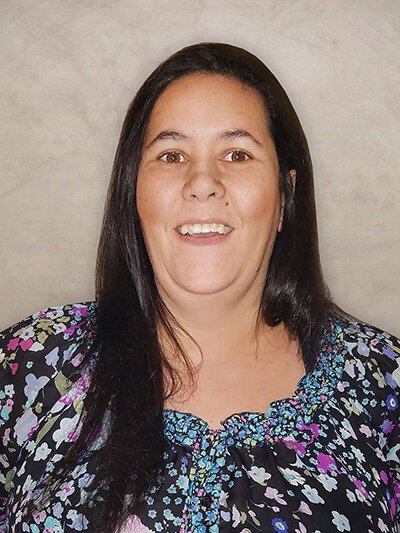Social Security makes every effort to ensure that any information published is accurate and up to date, but some information on this webpage may be historical.
Brenda's Success Story: A Light at the End of the Tunnel
Published in 2019
 During the summer of 1996, Brenda found herself in the psychiatric unit of a hospital while experiencing psychosis — a frightening symptom of a mental illness that causes people to hallucinate and hold on to untrue or strange beliefs, blurring the lines between delusion and reality. "You experience all the terror, confusion, bizarre images … [of] a nightmare," she explains. "Only … you can't just open your eyes and make it all go away. It's awful."
During the summer of 1996, Brenda found herself in the psychiatric unit of a hospital while experiencing psychosis — a frightening symptom of a mental illness that causes people to hallucinate and hold on to untrue or strange beliefs, blurring the lines between delusion and reality. "You experience all the terror, confusion, bizarre images … [of] a nightmare," she explains. "Only … you can't just open your eyes and make it all go away. It's awful."
Brenda was diagnosed with schizoaffective disorder, a chronic mental illness with symptoms that include anxiety, depression and psychosis. After being released from the hospital, she recognized that she'd need to focus full-time on her health and applied for Social Security Disability Insurance (SSDI). Brenda's symptoms recurred throughout the following 18 years, interfering with her ability to maintain steady work and live on her own. Still, she managed to earn a little money from part-time jobs, where she discovered that care-giving is a good fit for her. Brenda decided to go to college to study human services.
After many years of trial and error, Brenda found better treatment and helpful strategies to manage her symptoms. She felt better for longer stretches of time and thought often about full-time work. But Brenda knew that with a chronic condition, the road to recovery is littered with setbacks. She had concerns about what work would mean for her benefits.
When information about Social Security's Ticket to Work (Ticket) Program arrived in the mail, Brenda says it felt like a sign. She called the Ticket to Work Help Line and learned that the program supports career development for people with disabilities who are ready for employment. Adults age 18 through 64 who receive Social Security disability benefits qualify. Through the Ticket Program, State Vocational Rehabilitation (VR) agencies and service providers known as Employment Networks (EN) offer a range of free services to help people prepare for, find or maintain employment.
Brenda connected with the Maine Career Center, an EN that would help her navigate a transition to full-time employment. She learned about Social Security Work Incentives, which make it easier for adults with disabilities to explore work while receiving benefits. Because Brenda received SSDI, she would be able to test her ability to work full-time without suddenly losing her Medicare or cash benefits. More than 20 Work Incentives make it easier for people to work full-time, and jobseekers are encouraged to consult a Benefits Counselor — a qualified professional who can help people who receive SSDI or Supplemental Security Income (SSI), due to a disability, make informed decisions about employment.
"Peer support is one of the most successful therapeutic environments for [someone with a mental illness] … you need to have been there to really understand what is required to overcome the unique obstacles [we] face."
With career counseling, interview practice, job leads and encouragement, Brenda landed a job in 2015 as a Call Center Representative for Time-Warner Cable. In her position, she fielded questions, resolved problems and found she has an aptitude for conflict resolution. "I had a good rapport with co-workers and customers alike," she says. "My anxiety abated as my confidence grew … and it felt great to be contributing."
The experience was a good primer for her next position as a Community Rehabilitation worker, where Brenda applies her human service skills to helping vulnerable populations transition from a group home setting into the community. She takes pride in turning her personal history into an asset.
"Peer support is one of the most successful therapeutic environments for [someone with a mental illness] … you need to have been there to really understand what is required to overcome the unique obstacles [we] face. This work is not just about making money … it [provides] a healthy environment and I'm thriving in it."
Having found purpose and a paycheck through work, Brenda recognizes the important role that the Ticket Program played in her progress toward financial independence.
"Ticket to Work gives you a chance to put yourself out there, even when you're unsure," she says. "When you have the kind of support that allows you to focus on succeeding, you discover what you can do! I don't know what the future will bring. But with the [Ticket] Program and personal growth, I have more confidence than before that I have the tools to keep moving forward."
Ticket to Work and Work Incentives helped Brenda find her path to a better future. Find yours.
To learn more, call the Ticket to Work Help Line at 1-866-968-7842 or 1-866-833-2967 (TTY), or visit choosework.ssa.gov.